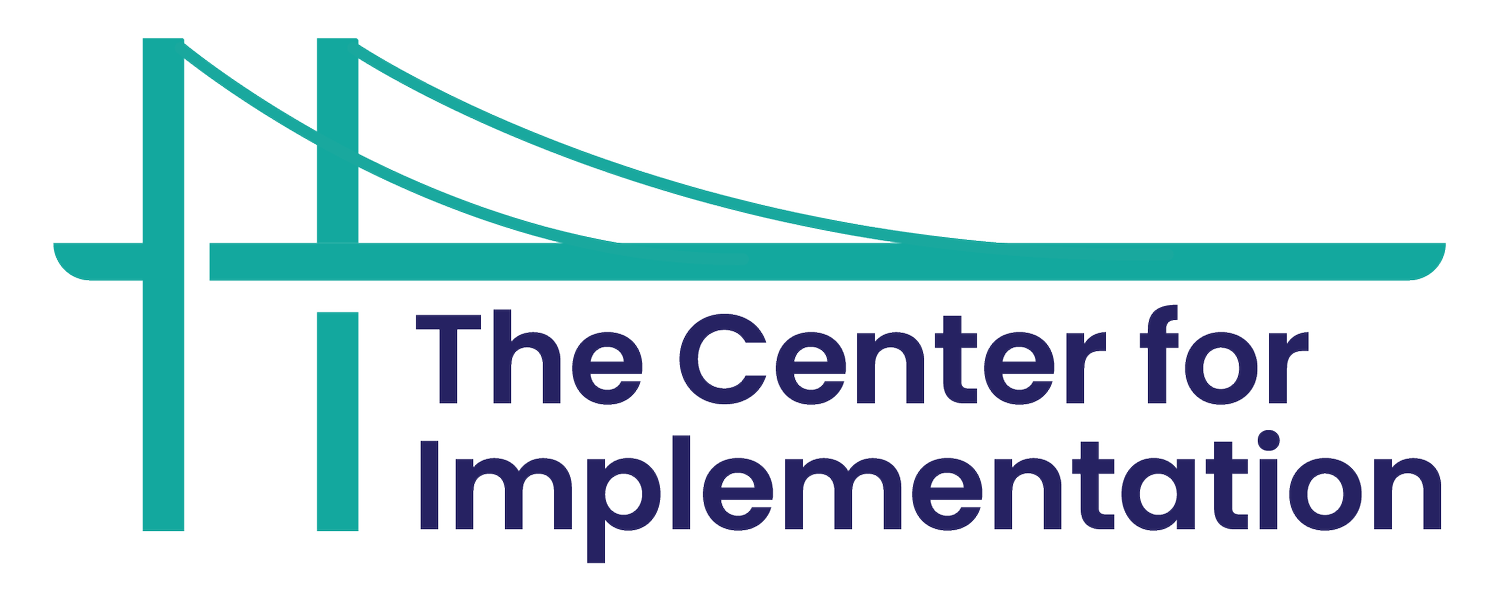Motivating Others: Soft Skills Needed to Lead and Support Implementation Initiatives
By Dr. Julia E. Moore, Executive Director
Note: We have updated our website since this article was published. As a result, you may have been redirected here from a previous URL. If you are looking for the article, "Project Spotlight: Cognitive Coaching: How the neuroscience of change can enhance implementation efforts” by Margie Sills-Maerov, please click here.
The role of implementation coaches to support implementation efforts
Implementation coaches have increasingly become a common support for implementation initiatives over the past decade. These implementation coaches (also referred to as implementation facilitators and technical assistance providers) guide the implementation team through the processes and challenges of delivering an intervention. This role appears in multiple frameworks (e.g., evidence-based system from implementation support; iPARIHS) and fits beautifully in the “Support System” of the Interactive Systems Framework.
What skills (hard and soft) do implementation coaches need?
Over the past year, I’ve worked with several organizations where implementation coaches were not new hires, but existing staff members (often very experienced, senior staff members) with intervention/content expertise, but who were relatively new to implementation science. As someone responsible for training, supporting, and coaching them to be implementation coaches, I began to deeply question and research which soft skills were needed.
Implementation coaches need to have an understanding of implementation theories, models, and frameworks, as well as intervention-specific expertise – the “hard skills” of implementation. I’ve spent many years working on what hard skills implementation coaches need. But anyone who has participated in an implementation initiative knows that implementation coaches also need to have “soft skills” – for example, being able to build trusting relationships, navigating challenging stakeholder interactions, and being able to facilitate honest and sometimes vulnerable conversations.
Based on a combination of research-based and practice-based evidence (e.g., reviewing all of the implementation core competencies; readiness, behavioral sciences and leadership literature; and personal interactions with coaches), one of the soft skills that seems relevant for all implementation projects and is challenging for almost everyone is how to motivate others.
Implementation coaches need to motivate the implementation team (those delivering the intervention). Implementation coaches need to motivate key stakeholders and leaders. Implementation coaches need to motivate research partners.
Unfortunately, although we use evidence to guide the intervention we are delivering, we don’t always use evidence to guide our other actions – this is such a lost opportunity since there is an extensive literature on how to motivate others to change.
What motivates people to change?
Let’s go through one small aspect of motivation that can transform how you approach conversations. Self-determination theory proposes that people are motivated when they:
Feel a sense of autonomy – they need to feel as if they have some control over their work or their actions
Feel a sense of connectedness – they feel a connection to other people
Feel a sense of competence – they either feel that they are good at something or have the potential to be good at something
Unfortunately, many implementation efforts fail to address these aspects of motivation. We often approach a change initiative stating that people “must” do something new (not instilling any sense of autonomy) and directly or indirectly tell them about how they have been doing things “wrong” (eroding their sense of competence, at best, or even creating hostility towards the change).
When implementation coaches are able to motivate others, they can better lay the groundwork to enable successful implementation initiatives.
It was during a conversation about the importance of motivating others that I met Margie Sills-Maerov, Senior Director of Thought Architects and Senior Project Officer of the Division of Lifelong Learning (L3) in the Faculty of Medicine and Dentistry at the University of Alberta. She had a depth of knowledge about the “soft skills” needed to support change and the neuroscience behind these soft skills. Although her work was not drawn from implementation science, the applicability to implementation practice was immediately apparent.
This article was featured in our monthly Implementation in Action bulletin! Want to receive our next issue? Subscribe here.

